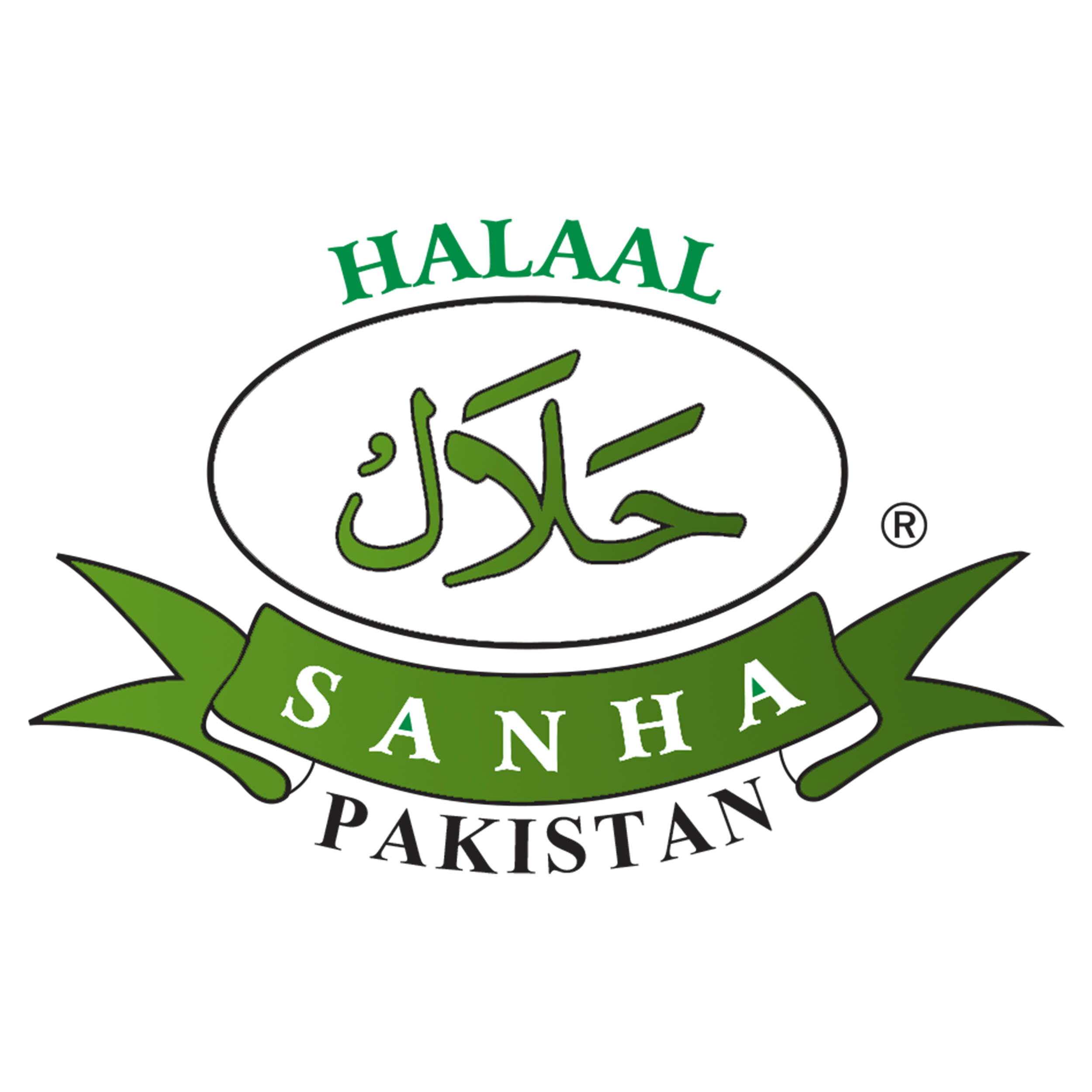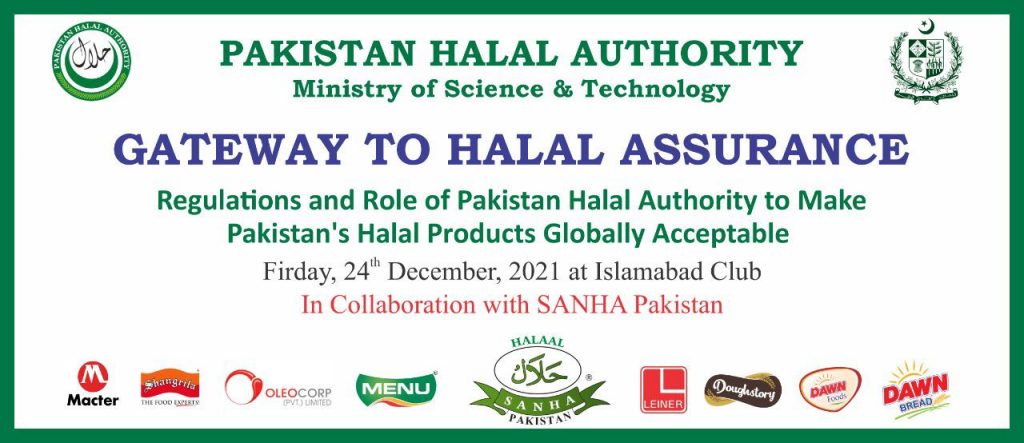 By Mufti Yousuf A. R. Khan, CEO SANHA Halal Associates Pakistan Pvt. Ltd.
By Mufti Yousuf A. R. Khan, CEO SANHA Halal Associates Pakistan Pvt. Ltd.
Introduction:
Consuming Halal is obligatory for a Muslim and when he becomes responsible for the other Muslims, feeding and providing them with Halal foods also become his liability. This chain of liability when reaches to state level, the state becomes responsible to feed its people with Halal foods[1].
Realizing this responsibility, the Constitution of Pakistan obliges the state to make arrangements to meet the Shariah requirements[2]. Pakistan has almost 96% Muslim population, hence Halal and Haraam were taken care of in the policies of the state business sector even before the proper Halal structure and system came into existence. Resultantly alcohol and pork imports have been declared prohibited[3]. Due to being an Islamic country and being a Muslim majority, slaughtering is done only by Muslims.
It is responsibly claimed that Pakistan has a complete system of Halal. Hardly any Islamic country has such a large system. In this regard, necessary details are being brought in this piece of literature so that the country’s Halal structure could easily be understood, and the related challenges could be highlighted.
The structure of Pakistan’s Halal system is based on five pillars under the supervision of federal government. The provincial government also has a share in it; hence our Halal system is divided into two levels, i.e., federal, and provincial. First of all, the federal structure is described.
- Federal Halal Structure:
The federal Halal structure in Pakistan is currently under the Ministry of Science and Technology, which includes:
- Pakistan Standards and Quality Control Authority (PSQCA)
- Pakistan National Accreditation Council (PNAC)
- Pakistan Halal Authority (PHA)
- Pakistan Council of Scientific and Industrial Research (PCSIR)
- Halal certification Bodies (HCB’s)
1.1 Pakistan Standards and Quality Control Authority (PSQCA):
The Pakistan Standards and Quality Control Authority is an authorized[4] body for standardization in Pakistan under the 1996 Act[5] and is an important member of most of the world standardization bodies[6], as well as of the OIC/SMIIC[7], which is a Halal standardization forum under the auspices of OIC.
PSQCA has developed a number of Halal standards[8] that have been subject to product certification and accreditation for the past ten years.
Pakistan’s Halal standards include Shariah injunctions as well as management and food safety requirements that make it unique, this is why Pakistan’s Halal standard for pharma has been put in the reference documents of the “Halal Pharma” standard that is being developed in OIC/SMIIC[9].
Furthermore, Pakistan’s Halal standard is the only standard in the world on which Halal certified products currently meet the requirements of all existing global Halal standards, such as:
- Our standard prohibits mechanical slaughter, it only accepts hand slaughter, and no one disagrees with hand slaughter.
- It forbids the slaughter of the People of the Book of the present age and makes it a condition that “only a Muslim can be a slaughterer”, and the slaughter of a Muslim is preferred by all jurists. No one disagrees with it.
- The majority of jurists agree that the use of all kinds of insects in food items is forbidden, with the exception of Imam Malik. Even he does not allow them while mentioning the word “insect”. More importantly there is no difference amongst all the Schools of Fiqh in abandoning the insects in food items.[10]
In contrast, the Halal standards of other Islamic countries allow the above-mentioned matters to some extent due to their administrative compulsions.
1.2 Pakistan National Accreditation Council (PNAC):
Halal standards are applied by the Halal industry, and their conformance is evaluated by the Halal certification bodies through audit process, hence, there was a need to assess and evaluate the Halal certification activities done by the Halal certification bodies. For this purpose, Pakistan National Accreditation Council (PNAC) has been established that operates under the act of 2017[11]. PNAC assesses and evaluates the Halal certification bodies in compliance with PS: 4992, the conformity assessment standard for the bodies providing Halal certification. Upon successful evaluation it issues an accreditation certificate to the Halal certification body. It is also a member of several international accreditation forums[12] and has been the world’s first body to accredit in Halal since 2012[13]. Like other Halal standards, PS: 4992 has been formulated keeping in view the Shariah injunctions as well as international conformity assessment standards[14], so that the Halal accreditation be in-line with the principles of conventional accreditation and should not be inferior from any aspect.
1.3 Pakistan Halal Authority (PHA):
PHA is the regulator for Halal, its rules have been recently approved. It will monitor Halal imports and exports under the 2016 Act[15]. For export, all local certification bodies shall be registered with it and all items that are aimed to be exported from Pakistan with a Halal certificate shall also be registered with this authority (PHA). Similarly, the articles for internal or external use entering Pakistan, if they have been Halal certified from anywhere else in the world, then their certification bodies will have to be registered with PHA.
Note: This institution is currently about to commence its operation and is under the Ministry of Science and Technology, however it is expected to be transferred to the Ministry of Commerce and Trade.
1.4 Pakistan Council of Scientific and Industrial Research (PCSIR):
PCSIR operates under the 1973 Act[16]. As a result of many years of hard work, it has gained the ability to conducts all the basic tests related to Halal and Haraam. Halal certification bodies seek its assistance according to their requirements.
1.5 Halal certification Bodies:
Currently there are 8 Halal Certification Bodies accredited by PNAC in Pakistan[17]. More than 500 companies and more than 10,000 products have been Halal certified covering almost all sectors of the industry including Halal food, beverages, personal care, medicines, colors, flavors, and packaging products.
- Halal provincial structure:
At present, there are about four food authorities at the provincial level in Pakistan. Sindh Food Authority[18], Balochistan Food Authority[19], Punjab Food Authority[20], Khyber Pakhtunkhwa Food Safety and Halal Food Authority[21]. All these authorities monitor food safety in their respective provinces as well as Halal and Haraam items which is reflected in their acts, guidelines, and notifications.
In the light of the above details, it can be estimated that how large and competent Halal administrative structure exists in Pakistan which has been in operation for the last one decade.
Despite having the large-scale Halal system, Pakistan had issued SRO-237[22] in the year 2019 to facilitate the Muslim Countries that have Halal system to some extent and their Halal industry that want to export their products to Pakistan. This SRO is also a part of our import policy[23]. It states that the import shipment shall be accompanied with a Halal certificate issued by a Halal certification body, accredited with an accrediting body (AB) which is a member of international Halal accreditation forum (IHAF), or Standards Metrology Institute of Islamic Countries (OIC/SMIIC). This SRO is still in operation.
Conclusion:
Considering the above-mentioned detail, it can be concluded that from the top to the bottom Pakistan has a complete Halal structure in place, and with its maximum mobility and utility it is expected that Pakistan will have a unique position in the Halal world in the near future and will grab its maximum share from the global Halal market.
ORIGINAL VERSION (including Footnotes)



